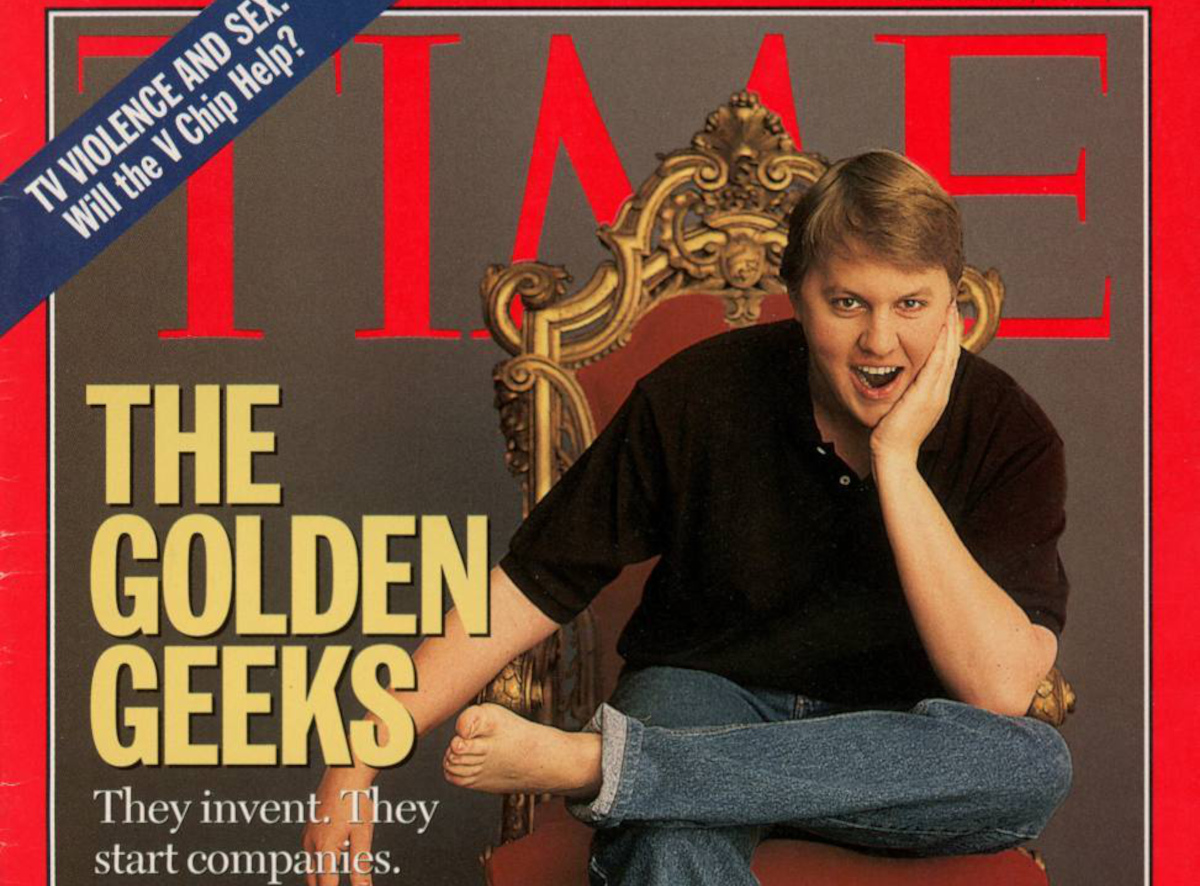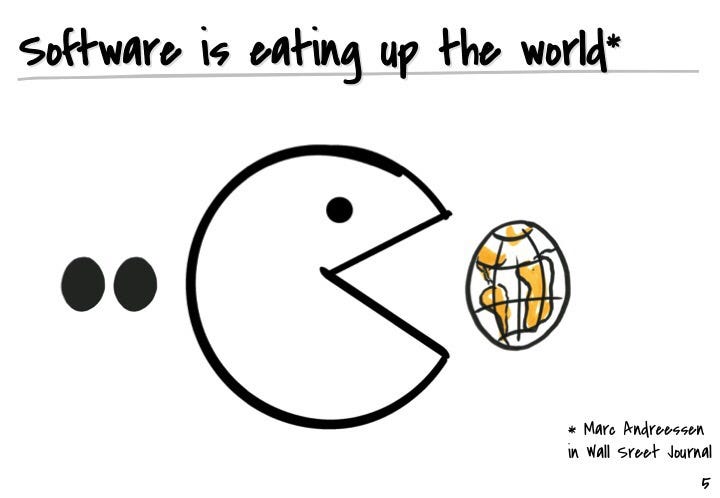The busiest block in sf today 👀 @ycombinator pic.twitter.com/YKF2mcrf0O
— Liz Wessel (@lizwessel) June 11, 2025
The Plateau of Plenty: Why VCs Are the Seers of Our Time
Why OpenAI Has Failed Compared to Early Google
The Slow Descent of Apple: Missing the AI Wave Like Microsoft Missed Mobile
Beyond Full Self-Driving: The Smarter, Faster Path to Safer Transit
YC Is the New IBM — And That’s the Problem
Y Combinator is one of the most iconic institutions in the startup world. It has funded over 4,000 startups, including legendary names like Airbnb, Stripe, and Dropbox. It redefined what early-stage acceleration could mean. It made demo day a cultural event. It scaled.
But here’s the uncomfortable truth: Y Combinator never grew up. Yes, it scaled like a factory—like you used to make five ceramic cups and now you produce 50. But scale isn’t evolution. And YC hasn’t evolved for the era we’re in. It was designed for 2005, and it’s still running the same playbook in 2025.
Can the next OpenAI be born inside YC? The answer is clear: No. And here's why that matters.
The Myth of Scalability as Innovation
Y Combinator perfected the pipeline of churning out “fundable” startups, often with minimal innovation risk. You don’t go to YC to build a moonshot—you go to YC to get a bridge round and validation. The model optimizes for safe bets, not world-changing bets.
That’s why the biggest tech bets of the last decade didn’t come from YC:
-
OpenAI? Born out of an elite coalition of thinkers and capitalists, not a YC batch.
-
NVIDIA’s AI bet? Vision from within a hardware company with deep technical roots.
-
DeepMind? U.K.-based and far more academically anchored than YC-style hustle.
-
SpaceX? Elon didn't start it with $125k and a pitch deck.
YC didn’t—and perhaps couldn’t—incubate these.
The Platform Problem: YC Is Craigslist
YC today is like Craigslist. Once, it was everything—jobs, housing, gigs. But then a thousand verticals unbundled it: Airbnb took housing, LinkedIn took jobs, Uber took rides, and so on.
YC is waiting to be unbundled in the same way.
It is a generalist factory in a world now defined by the intersections of specialized, emerging technologies—AI + biotech, crypto + supply chain, robotics + mental health. These aren’t demo-day darlings. These are decade-long labs. These are fund-and-build platforms. They require long-term, infrastructure-level thinking.
The Old Playbook Can’t Win New Games
YC was built for Web 2.0. It flourished when minimal viable products and agile iterations could quickly lead to market traction. But the new wave of innovation doesn’t move in 3-month cycles. We’re entering a world of:
-
Pre-trained models that cost tens of millions
-
Deep tech that requires regulation-savvy founders
-
Climate tech with long feedback loops
-
Decentralized protocols with complex incentive engineering
What these ventures need is not YC’s playbook. They need patient capital, deep integration with research institutions, infrastructure support, cross-disciplinary expertise, and a new breed of founder networks.
YC Is IBM. Where’s the Next Apple?
In many ways, YC is IBM now—respected, still powerful, but stagnant. You know what that makes the opportunity? We need 100 new post-YCs. Each one laser-focused on a vertical. Each one optimized for depth, not breadth. Just like Airbnb pulled one vertical out of Craigslist and ran with it, the accelerators of the next decade will do the same with YC.
We’ll see:
-
An OpenAI-style research-to-commercialization lab for AGI
-
A biotech founder accelerator with embedded labs and FDA navigation
-
A climate moonshot studio building infrastructure, not MVPs
-
A sovereign-technology accelerator for deep geopolitical alignment
Each of these would make YC look like a hobby club for hustlers with slide decks.
Point Be Noted
Let’s not confuse ubiquity with relevance. YC’s continued dominance in the startup discourse is a legacy effect. Its true limitations are masked by volume. But volume is not vision. And in the AI era, in the climate era, in the post-scarcity, post-crypto, post-Web2 world, we need vision.
The most important companies of the next 20 years won’t come out of YC.
They will be born elsewhere—on new platforms, with new rules, under new accelerators that know how to build for complexity, capital intensity, and global impact.
YC lit the flame.
But it's time for a new fire.
Paul Graham's Favorite History BooksPaul Graham: The Shape of the Essay Field
Elon Musk's Leadership Mistakes At Tesla
Paul Graham’s Timeless Advice for Tech Startups: A Masterclass in Building the Future
At half the market price, as many engineers as you want. No benefits. Also management help. Which means you get to focus on the spec and design level ..... will allow you to scale fast. A1 talent pool. Best of the best. Commandos.
— Paramendra Kumar Bhagat (@paramendra) June 11, 2025
Liquid Computing: The Future of Human-Tech Symbiosis
Velocity Money: Crypto, Karma, and the End of Traditional Economics
The Next Decade of Biotech: Convergence, Innovation, and Transformation
Beyond Motion: How Robots Will Redefine The Art Of Movement
ChatGPT For Business: A Workbook
Becoming an AI-First Organization
Quantum Computing: Applications And Implications
Challenges In AI Safety
AI-Era Social Network: Reimagined for Truth, Trust & Transformation
Buy a large screen for video calls. Use the real time communication apps.
— Paramendra Kumar Bhagat (@paramendra) June 11, 2025
This is, and always has been, a white supremacist administration. https://t.co/Nz3j4ePzQa
— Julia Ioffe (@juliaioffe) June 11, 2025
Why is this dude suddenly speaking Sanskrit?
— Paramendra Kumar Bhagat (@paramendra) June 11, 2025
Paul Graham, Brad Feld, Me, BBC (2010)
United States to woo entrepreneurs with new visa law
🧵YC Is the New IBM — And That’s the Problem
— Paramendra Kumar Bhagat (@paramendra) June 11, 2025
Hello @gdb @sama I am looking for a corporate sponsor for this blog https://t.co/4tF5jVpW0n 5K/month. You get five OpenAI focused blog posts per month. And a mention in the header. Can I get you interested?
— Paramendra Kumar Bhagat (@paramendra) June 11, 2025
Back to the fold.
— Pekka Kallioniemi (@P_Kallioniemi) June 11, 2025
We now know who's the real boss in this silly game. pic.twitter.com/MpyLg2gd57
100 Emergent Technologies Of The Recent Decades And Their Intersections
Skip the Landline: Why Perplexity AI Must Leap Boldly Into the Future
Prompts Are Thoughts
The Five Year Window: A Smarter Lens for Navigating the Future
Government Tech: The Next Great Leap in Nation-Building (GovTech)
Is Tesla Really a $25 Trillion Company Because of Optimus? A Deep Dive into Elon's Claim
AI-Era Social Network: The Facebook Killer That Looks Nothing Like Facebook
Why Thinking Big Is the Safest Bet in the Age of AI and Exponential Technologies
10 Trends In ClimateTech
Solve Drinking Water
Deep Ocean, Surface Of Mars: Colonization Prospects
Why Is Crypto Regulation Hard?
The Collision of Emerging Technologies: Where the Future of Tech Ignites
Unicorns, Elephants, And Plentiful Trillion Dollar Companies
The Physics: Bigger Rockets Are Harder To "Get Right"
Solugen: The Tesla of Chemicals—Why Isn’t It a Household Name Yet?
Software Ate the World. Now AI Is Eating Software.
Google vs. Google: The AI Disruption and the Innovator’s Dilemma
YC Is the New IBM — And That’s the Problem https://t.co/v1lj7czcto
— Paramendra Kumar Bhagat (@paramendra) June 11, 2025
Don't make it personal, personal. Let's collaborate and innovate. Shall we?
— Paramendra Kumar Bhagat (@paramendra) June 11, 2025
Aight bet
— Garry Tan (@garrytan) June 11, 2025
Y Combinator (YC) holds a 7% equity stake in each of its ~5,000 portfolio companies via its standard deal (ycombinator.com).
Industry estimates put the combined valuation of YC-backed startups at approximately:
-
$600 billion, according to multiple sources (marketsentiment.co, blog.joinodin.com),
-
and possibly as high as $900 billion for the top ~271 companies (axios.com, jaredheyman.medium.com).
Using those ranges:
-
At $600 billion total, YC’s 7% stake is worth:
-
At an upper estimate of $900 billion, YC’s stake would be:
📊 Summary
| Assumed Portfolio Valuation | YC’s Stake (7%) | Estimated Worth |
|---|---|---|
| $600B | 7% | $42 billion |
| $900B | 7% | $63 billion |
So, YC’s 7% equity across its ~5,000 companies is likely worth between $42 billion and $63 billion, depending on how you calculate “total portfolio value.”
— Garry Tan (@garrytan) June 11, 2025
🇨🇦|🇵🇸 A delegation of over 100 Canadian people will join the Global March to Gaza [Sumoud Convoy]
— Suppressed News. (@SuppressedNws) June 11, 2025
pic.twitter.com/UINsFXKfth
I can't believe that nobody wanted it in 2016! I published my book Artificial Intuition in early 2017. I had thought the Deep Learning revolution was already in full swing! In fact, Transformers were introduced later that same year. https://t.co/47ksGt6ly7
— Carlos E. Perez (@IntuitMachine) June 11, 2025
The WNBA’s Most Valuable Teams 2025 https://t.co/pvwleLvtF5
— Forbes (@Forbes) June 11, 2025
They want to talk about anything other than the super unpopular thing they are doing. Our job is to continue to talk about the super unpopular thing they are doing. https://t.co/T42WmHrBL1
— Brian Schatz (@brianschatz) June 11, 2025
Trump’s upcoming $45 million parade will most likely get rained on, according to current weather forecasts.https://t.co/QOlswsV6TW
— The Daily Beast (@thedailybeast) June 11, 2025
My friend and @interfaithusa colleague @theRevAdam on how hard, and important, it is to achieve unum. It’s the difference between coexistence and chaos. In @Deseret https://t.co/uvgeMDLwtw
— Eboo Patel (@EbooPatel) June 11, 2025
Opinion: First Lady Melania and Pope Leo are right — it’s “unum” time Unum doesn’t erase conflict or pretend we all agree. It’s not utopia. It’s the hard, daily work of choosing coexistence over chaos ..... a time when America — and the world — feels dangerously divided. ....... Unum means Jewish and Muslim Americans grieving side-by-side. It means a First Lady who grew up Catholic in Slovenia invoking a motto that speaks across American synagogues, mosques and churches alike. It means a Pope who spent years in Latin America calling for peace — not as an abstract dream, but as an urgent task. .......... In moments like these, we face two temptations. One is despair: to give up, to believe the divisions are too deep. The other is rage: to blame, punish and retreat into our tribes. ......... Pope Leo XIV said it plainly: “Be bridgebuilders, peace seekers, and companions on the journey.” That’s not just a prayer. It’s a plan. ......... Because in a world driven by algorithms that divide and outrage that sells, choosing Unum is radical. It means staying at the table when you’d rather storm out. It means believing that pluralism — people of different faiths, races, beliefs and stories — can still build a shared life. ......... belonging isn’t partisan. It’s American. It always has been.
Standing room only at @ycombinator demo day to the very last company. pic.twitter.com/YQqRYDabp7
— Yuri Sagalov (@yuris) June 11, 2025
What do you say we open up a channel of communication? My first name at Gmail.
— Paramendra Kumar Bhagat (@paramendra) June 12, 2025










